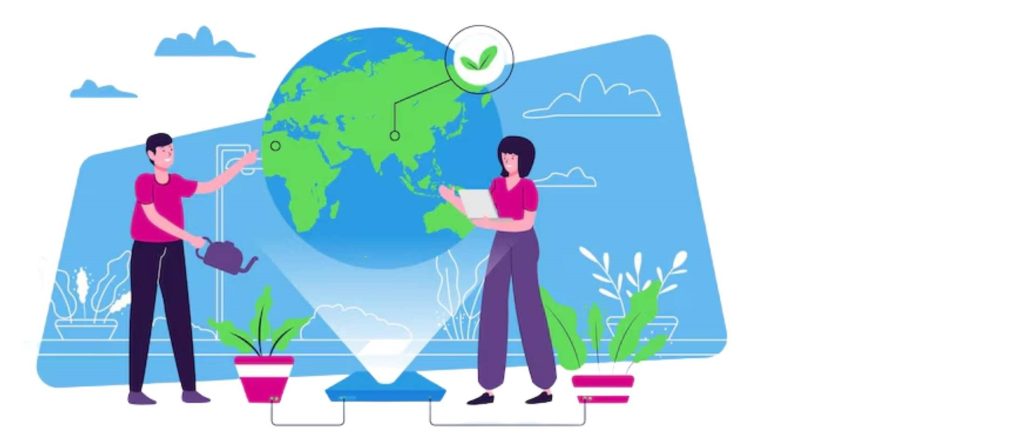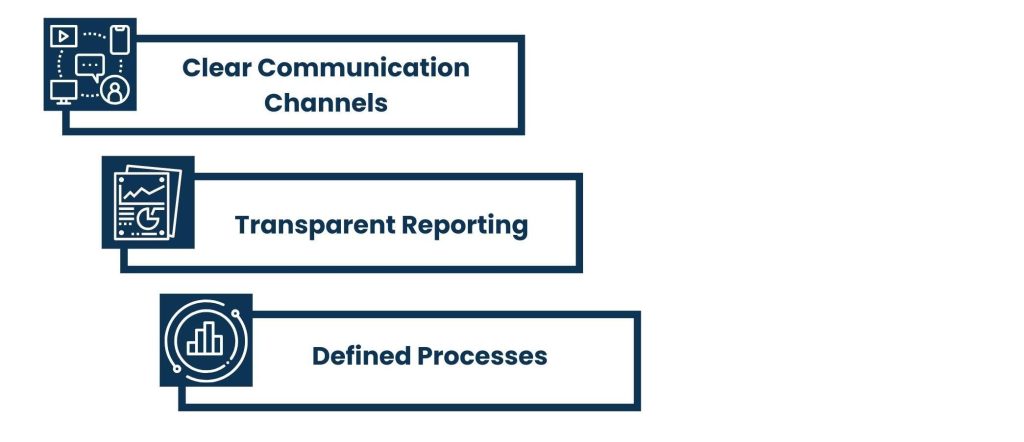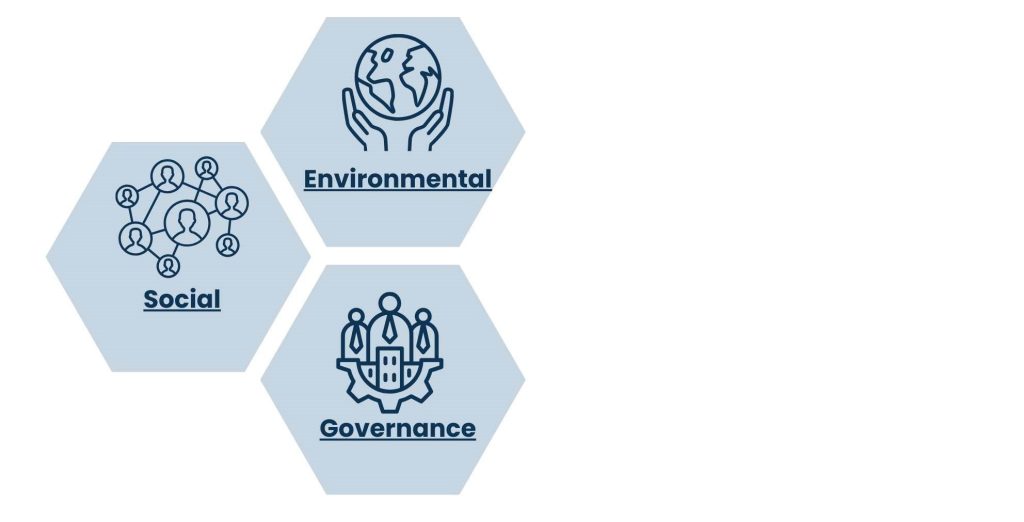Introduction
Sustainability is no longer a buzzword, it’s a business imperative. As someone who’s worked closely with companies to help them reduce their environmental footprints, I’ve seen this type of thing firsthand — small operational tweaks that can add up to big change. The most underrated tactics? Hiring a Remote Project Coordinator.
When companies contemplate going green, they’re likely to envision tangible measures: reducing the use of paper, swapping out lighting for energy-efficient bulbs, or the presence of recycling bins throughout the office. Those are all terrific starting points, but they barely scratch the surface.
Hidden Costs of How We Work
What we don’t realize is how much our day-to-day operations, especially project management and team coordination, contribute to the carbon footprint of a company. Each in-person meeting, each drive, and each piece of physical infrastructure use accumulates over time.
That’s why shifting to remote coordination isn’t just a question of flexibility; it’s a strategic move towards sustainability. The Remote Project Coordinator cut companies’ reliance on labor-intensive procedures by taking key management functions to the web. This change conserves energy, reduces waste, and establishes a culture in which digital efficiency equals environmental goals.
In most instances, it’s such behind-the-scenes tweaks and not merely the glaringly evident green efforts that provide sustained environmental paybacks. Companies that understand this are the ones truly at the vanguard of green practices.
Why Sustainability and Business Efficiency Go Hand in Hand
Sustainability was treated for years as a stand-alone initiative —something that was checked off to satisfy investors and stay on the right side of regulators. But nowadays, smart companies know that environmentally sound policies can boost productivity, lower costs, and foster goodwill with the brand.
When I started factoring remote support into the management of client projects, it was clear: The less we depended on bricks-and-mortar offices and traditional workflows, the less we expended — not just dollars, but in carbon emissions.

1. Sustainability as an Enabler of Operational Effectiveness
One of the most common myths I hear is that being green is expensive or invasive. Process tends to be simplified by sustainable Face and Body Oil. And when a company reduces energy use or switches to cloud-based systems, for example, it’s not just being green — it’s cutting waste, too.
A Remote Project Coordinator automatically translates this philosophy into everyday practice. With virtual project management, they instill companies with tools and processes that are both lean and sustainable. Virtual collaboration platforms, automated reporting, and virtual meetings all cut down on the need for physical resources while accelerating communication and decision-making.
I have witnessed companies reduce project turnaround times just because remote coordination eliminated layers of inefficiency associated with old-fashioned, in-person practices.
2. The Financial Case for Sustainability
There’s also a powerful financial motivation behind green practices. Energy conservation, fewer overhead costs in the office, cheaper travel — these savings can accrue fast. When businesses adopt remote coordination, they realize these savings without diminishing performance.
I remember having a client who was reluctant to transition to virtual project management, worried about losing control. In a matter of months, not only did their operational expenses decrease by 20%, but they also experienced smoother project delivery. Efficiency and sustainability went hand in hand — and the bottom line showed it.
3. Increasing Brand Value Through Green Operations
In today’s marketplace, customers and partners are observing how businesses work in the background. Businesses with green practices become trusted and loyal. A Remote Project Coordinator facilitates this by integrating sustainable processes into day-to-day operations — green practices as part of a company’s DNA rather than its advertising.
Sustainability is no longer a side gig. It’s a more intelligent way to do business — more flexible, economical, and in tune with current expectations.
Also Read: HIPAA Compliance Services
The Role of a Remote Project Coordinator in Modern Business
Let’s discuss what a Remote Project Coordinator really does. In addition to keeping work on schedule and groups on the same page, they optimize operations without being location-bound. This is convenient, but more importantly, it directly enables more sustainable business models.

Here’s how:
1. Reducing Commuting Emissions
Consider the daily commute. All employees who drive to an office contribute to carbon emissions. By having a Remote Project Coordinator coordinate processes virtually, companies cut down on the necessity for in-person meetings and office attendance, cutting transportation-related emissions.
It’s not only about reduced traffic on the roads — it’s about reassessing if physical presence can be done away with. Long-term, this change can cut a company’s overall carbon impact substantially, particularly for groups stretched across cities or countries. Furthermore, workers also tend to appreciate the freedom, which translates to improved morale and retention.
2. Reducing Office Space Needs
A slimmer office isn’t all about saving rent. Less presence on-site equals less energy use — lighting, heating, cooling, and office equipment all tally up. Having a Remote Project Coordinator manage things remotely, companies can reconsider their requirement for vast physical space.
It’s been to the point where some businesses have become completely remote, moving away from needing fixed office space altogether. Not only does this minimize operational expenses, but it also assists corporate sustainability initiatives. Reduced footprints equate to less environmental footprint and more nimble business models.
3. Fostering Digital-First, Paperless Workflows
Remote coordination tends to propel firms automatically into digital equipment, project management software, cloud storage, and virtual whiteboards. It’s a victory for both productivity and the planet.
Paperless documentation also enhances data security and minimizes clutter, making information more accessible and shareable. With time, companies using paperless workflow realize that they are faster and more transparent. It’s an easy adjustment with long-lasting environmental gains.
4. Promoting Green Vendor and Resource Management
An effective Remote Project Coordinator not only handles internal teams, they also interacts with vendors, suppliers, and partners. This provides opportunities to put eco-friendly options first, from choosing sustainable materials to streamlining delivery logistics.
By developing long-term relationships with environmentally aware vendors, companies can synchronize their supply chain with their green principles. Remote coordinators can also monitor and report on
sustainability measures, holding everyone accountable within partnerships. This forward-thinking strategy makes both environmental influence and supplier cooperation stronger.
5. Maximizing Time and Resource Utilization
Sustainability is also being resourceful, including with time. Remote coordinators are masters at cutting out redundancies, not doing things twice, and keeping everyone on track. Less wasted time usually means fewer wasted resources.
With improved planning and streamlined processes, projects need fewer physical assets, like printed documents or on-site equipment. This efficiency not only lessens operational pressure but also helps achieve long-term sustainability objectives. It’s a leaner, smarter approach to project management without sacrificing results.
Real-World Impact: Sustainable Success Stories
I’ve worked with a mid-sized marketing agency that wanted to cut costs and improve its environmental impact. By introducing a Remote Project Coordinator, they shifted 90% of their project management online.

Within six months:
- Office energy consumption dropped by 35%.
- Business travel was reduced by half.
- They eliminated nearly all paper-based reporting.
Not only did they achieve their sustainability objectives, but they also experienced increased team satisfaction and quicker project completion times. That’s the type of double bottom line businesses should strive for.
Overcoming Common Concerns Regarding Remote Coordination
Some leaders are reluctant to adopt remote positions, fearing that communication breaks down, control is lost, or accountability diminishes. I get it — moving from classic, face-to-face management to a virtual environment can seem like a giant leap. Transitioning always introduces doubt. But with effective systems in place, a Remote Project Coordinator doesn’t dilute control — it enhances it.

Here’s the way I approach these issues with clients and demonstrate to them that remote coordination not only works but is frequently better than conventional methods:
1. Clear Communication Channels
One of the greatest fears is that remote work results in inadequate communication. New tools such as Slack, Zoom, Microsoft Teams, and Asana keep teams more engaged than ever. A Remote Project Coordinator makes sure these tools are utilized effectively, with clear expectations for check-ins, updates, and collaboration. Instant messaging, planned video calls, and centralized task boards do away with the delays usually encountered in office environments. Communication is more formal, documented, and available.
2. Transparent Reporting
With no in-person contact, there’s a fear of losing insight into the progress of the projects. Enter transparent reporting. An efficient Remote Project Coordinator implements dashboards, automated reporting, and daily or weekly status reports to ensure that all parties have up-to-the-minute information. No longer will stakeholders wait until the next in-person weekly meeting for live data about their projects. In most cases, the transparency available will surpass that offered by more conventional setups, in which the same information might end up buried in email exchanges or voice calls.
3. Defined Processes
Another myth is that remote coordination creates a lack of structure. The reality is, remote success is built on defined processes. A Remote Project Coordinator establishes clear workflows, timelines, and accountability from day one. With everything documented and monitored digitally, there’s less space for miscommunication or missed deadlines. Remote doesn’t equal informal — it equals purposeful, organized, and driven by accountability.
Once companies achieve this degree of clarity and efficiency, those initial doubts about remote coordination immediately dissipate.
How Remote Project Coordinators Support Corporate Sustainability Objectives
A lot of firms now have well-defined ESG (Environmental, Social, and Governance) goals, not only to appease investors or regulators, but because profitable, responsible business is now inextricably linked to long-term business success. The difficulty lies in aligning these ambitions with everyday activities in a natural and effective manner, and not artificial or performative.

This is where a Remote Project Coordinator is an asset, supporting each pillar of ESG in tangible, measurable terms:
1. Environmental: Lowering Operational Footprint
Remote coordination reduces a company’s environmental footprint significantly. By taking project management and team collaboration online, businesses reduce office energy use, commuting emissions, paper use, and other resource-draining activities. I’ve worked with teams where just transitioning status meetings and reporting to digital platforms led to a noticeable decrease in their carbon footprint. A Remote Project Coordinator embeds these practices into standard workflows, ensuring sustainability isn’t treated as an extra task, but as part of how projects naturally operate.
2. Social: Enhancing Employee Well-Being and Inclusion
More is at stake in sustainability than the environment — the social component is key. Providing flexible, remote positions is conducive to work-life balance, prevents burnout, and creates pathways to a more diverse range of employees. A Remote Project Coordinator bridges the gap of distance to work together, no matter where you are in the world. I’ve witnessed how this flexibility creates happier, more engaged teams, which in turn drives productivity and retention, both critical metrics for any social responsibility strategy.
3. Governance: Driving Accountability and Transparency
Good governance depends on clear organization, open procedures, and solid accountability — all domains in which remote coordination thrives. With all details logged through electronic instruments, from the assignment of tasks to the timelines of projects, there’s a transparent audit trail. A Remote Project Coordinator maintains accurate, available, and compliant reporting. This degree of visibility facilitates ethical decision-making and gains stakeholders’ confidence.
In my role supporting businesses, I’ve seen how remote coordination helps tick these ESG boxes — not as a formality, but as part of genuinely improved business practices that drive both sustainability and efficiency forward.
The Future Is Remote and Green
We are not only talking about the response to global events, but it is a strategic choice. Each company restructuring in your direction gains long-term resilience, agility, and sustainability.
The very idea of having a physical office at the center of work becomes archaic, not only because it is less flexible but also because such a structure is less and less reconciled with modern business’s environmental and operational needs. More than just having a person who keeps your work in order from a distance.
He is one of the building blocks of a nimble, sustainable business model. And another avoided video call or a digital process is a step towards a cleaner future.

1. Remote Coordination as a Standard, Not a Trend
What we’re seeing now is a fundamental shift in how businesses think about work. Remote coordination is no longer a temporary fix — it’s becoming the standard for efficient, forward-thinking organizations. I’ve worked with companies that initially viewed remote roles as optional but quickly realized the strategic advantages go far beyond convenience. Reduced overhead, better talent access, faster project delivery, and a measurable reduction in environmental impact — all driven by remote coordination.
2. Technology Will Continue to Drive Sustainable Remote Work
As digital solutions become increasingly advanced, the capabilities of a Remote Project Coordinator to work on challenging projects anywhere in the world will only grow. Breakthroughs such as AI-powered project management, cloud-based collaboration, and next-generation communication platforms will enhance remote make coordination even smoother and more enduring. Companies that implement these technologies early will remain ahead, not only in terms of productivity, but also in responding to increasing environmental expectations from customers, investors, and regulators.
Ahead of time, the successful businesses will be those that bake sustainability into the fabric of what they do, and remote project coordination is among the wisest strategies to make that happen. The future is not just green or remote — it’s both, synergizing to create more intelligent, more ethical businesses.
Conclusion
Sustainability is not a nice-to-have anymore; it’s business-critical. But going greener doesn’t always mean implementing drastic changes or huge investments. Many times, it’s merely about making smarter operational decisions that inherently align with efficiency and planet-friendliness. Hiring a Remote Project Coordinator is one of those decisions.
Throughout my experience working with businesses of all sizes, I’ve seen how remote coordination can quietly transform the way companies operate. It reduces waste, cuts emissions, and streamlines workflows, all while keeping teams connected and projects on track. It’s proof that sustainability and productivity aren’t opposing goals; they enhance each other when approached the right way.
By moving project management online, businesses can lower their physical presence, adopt digital-first practices, and create a more agile, adaptable workforce. These aren’t green wins alone — they’re competitive wins in today’s marketplace.
At Tasks Expert, we think that companies shouldn’t have to sacrifice efficiency for sustainability. With proper assistance, such as a specialized Remote Project Coordinator, it’s possible to have both in perfect harmony. If you’re ready to transform your sustainability objectives into daily habits without sacrificing performance, we’re here to guide you to do so with confidence.
Sustainability is not what you do — it’s how you do it. And with remote coordination, being smarter about work also makes you greener.
About Us
Tasks Expert offers top-tier virtual assistant services from highly skilled professionals based in India. Our VAs handle a wide range of tasks, from part time personal assistant to specialized services like remote it support services, professional bookkeeping service etc. Furthermore, it helps businesses worldwide streamline operations and boost productivity.
Ready to elevate your business? Book a Call and let Tasks Expert take care of the rest.









